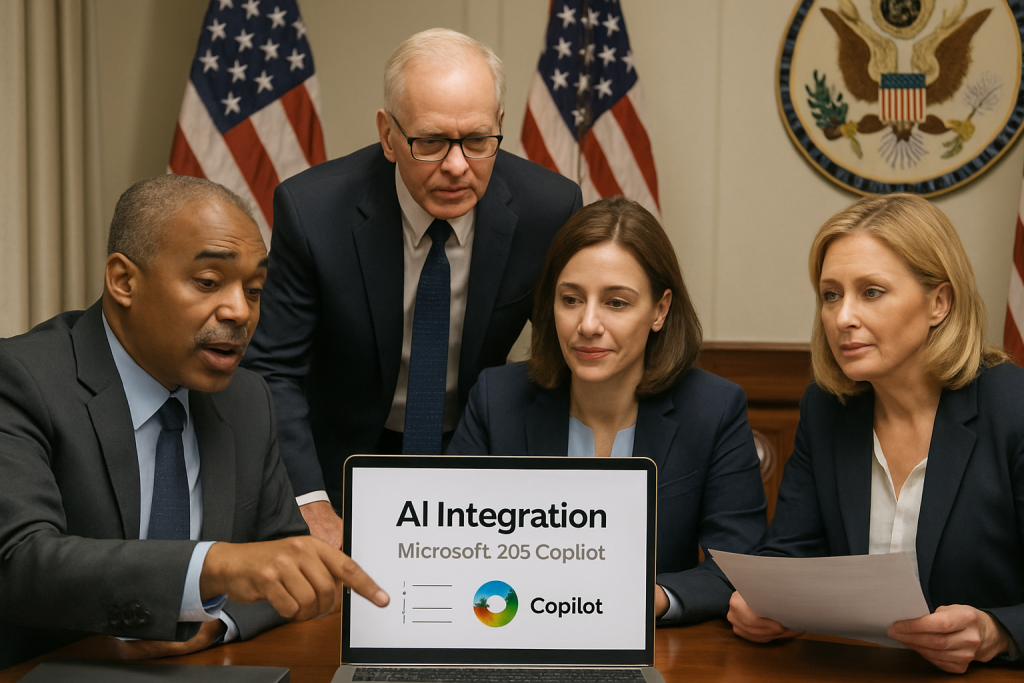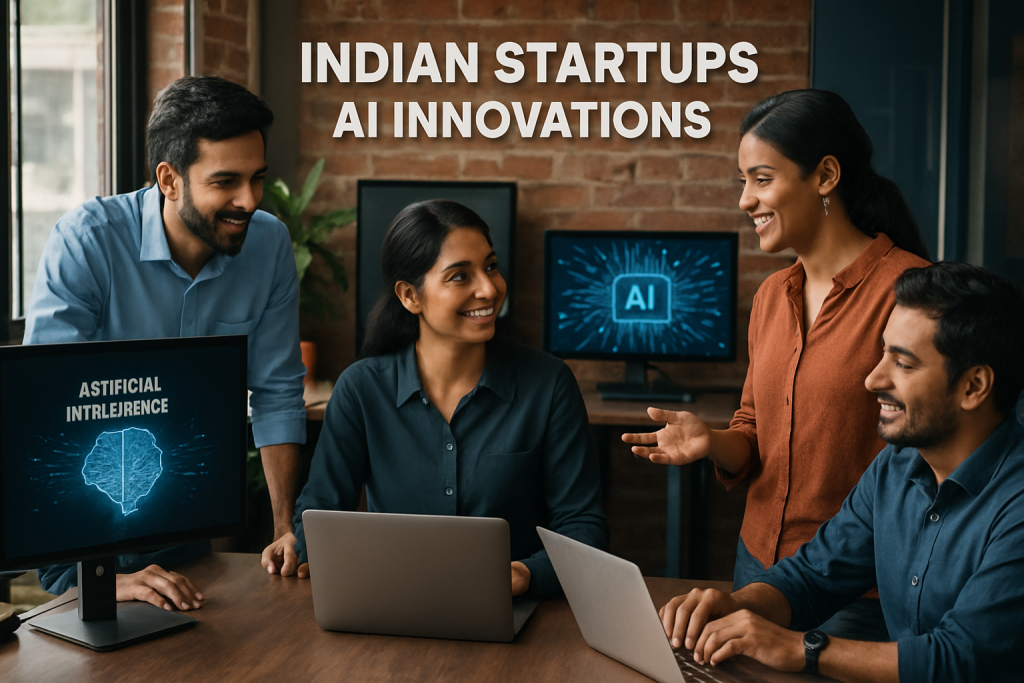Microsoft has secured a groundbreaking deal with the US General Services Administration to provide its Copilot AI assistant free for one full year to millions of federal workers. This strategic partnership promises to save taxpayers $3.1 billion in its first year alone while positioning the US government at the forefront of AI adoption globally.
The agreement delivers Microsoft 365 Copilot at no cost to government workers using the high-security G5 license — a premium tier reserved for departments handling the nation’s most sensitive information. This massive deployment affects millions of federal employees across agencies from the Social Security Administration to passport services.
Why This Deal Matters Now
This initiative directly supports the administration’s AI Action Plan, designed to modernize government operations through artificial intelligence integration. Federal workers will gain access to AI tools that automate routine tasks like processing claims, analyzing complex datasets, and drafting responses — freeing employees to focus on cases requiring human judgment.
“OneGov represents a paradigm shift in federal procurement that is leading to immense cost savings, achieved by leveraging the purchasing power of the entire federal government,” explained FAS Commissioner Josh Gruenbaum.
The timing proves critical as governments worldwide race to harness AI capabilities for public service delivery. Citizens stand to benefit from faster processing times, more accurate responses, and improved service quality across federal touchpoints.
Strategic Advantages Drive Massive Value
Microsoft’s comprehensive package extends beyond free Copilot access. The agreement includes significant discounts on Azure cloud services and eliminates data transfer fees — removing long-standing barriers that have slowed collaboration between federal agencies.
The total value proposition reaches over $6 billion across three years, according to GSA estimates. This represents one of the largest technology modernization initiatives in federal procurement history.
Microsoft Chairman and CEO Satya Nadella emphasized the transformative potential: “We will help federal agencies use AI and digital technologies to improve citizen services, strengthen security, and save taxpayers more than $3 billion in the first year alone.”
Security Framework Addresses Critical Concerns
Introducing AI into government systems raises immediate security questions. Microsoft’s cloud and AI services have already passed FedRAMP High security authorization — the federal government’s most stringent certification for cloud systems handling sensitive data.
While full FedRAMP High certification for Copilot itself remains pending, the Department of Defense has granted provisional authorization. The package includes advanced security tools like Microsoft Sentinel and Entra ID to support the government’s “zero trust” security strategy.
These security measures prove essential as federal agencies process everything from tax returns to national security intelligence through AI-enhanced workflows.
Implementation Strategy Ensures Maximum Impact
Microsoft commits an additional $20 million for training and support services to guarantee effective adoption. This investment includes workshops, resources, and dedicated support teams to help workers integrate AI into daily tasks.
“GSA is proud to partner with technology companies, like Microsoft, to advance AI adoption across the federal government, a key priority of the Trump Administration,” said GSA Deputy Administrator Stephen Ehikian. “We urge our federal partners to leverage these agreements, providing government workers with transformative AI tools that streamline operations, cut costs, and enhance results.”
The training program targets practical applications: drafting reports, comparing policies, analyzing large datasets, and identifying waste reduction opportunities. These skills will help agencies maximize both efficiency gains and cost savings.
Long-Term Market Implications
This deal represents Microsoft’s calculated “loss leader” strategy to establish dominance in the government AI market. Once millions of federal workers integrate Copilot into their daily workflows, switching costs become prohibitive — effectively creating vendor lock-in.
Competitors like Google, Anthropic, and OpenAI have struck their own GSA bargains, but none match Microsoft’s comprehensive free offering. This positions Microsoft to capture market share while competitors focus on pricing strategies.
The agreement sets new precedents for enterprise AI procurement, shifting competition from direct pricing wars to integrated ecosystem strategies. Companies offering narrow AI solutions may find themselves marginalized unless they partner with larger platform providers.
What Business Leaders Should Know
This partnership offers critical lessons for enterprise decision-makers evaluating AI adoption strategies. Microsoft’s approach demonstrates how comprehensive ecosystems — combining cloud infrastructure, productivity software, and AI capabilities — create competitive advantages.
For private sector organizations, the government’s experience will provide valuable data on large-scale AI implementation challenges, security protocols, and productivity gains. Business leaders should monitor federal adoption metrics to inform their own AI investment decisions.
The deal also highlights the importance of balancing short-term cost savings with long-term vendor strategy considerations. Organizations must evaluate whether immediate efficiency gains justify potential future pricing pressures.
Global Context for Digital Transformation
This initiative positions the US government as a global leader in public sector AI adoption. Other nations will likely accelerate their own government AI programs to remain competitive in digital service delivery.
The partnership builds on Microsoft’s four-decade relationship with the federal government, spanning IT infrastructure modernization and cybersecurity initiatives. This historical foundation provides the trust necessary for such extensive AI integration.
Federal agencies across departments — from healthcare to defense — will gain AI capabilities previously available only to private sector organizations with substantial technology budgets.
Your Take on Government AI Future
Microsoft’s massive government AI deployment marks a pivotal moment in public sector digital transformation. The success or challenges of this implementation will influence enterprise AI adoption strategies worldwide.
As millions of federal workers begin using AI assistants daily, the ripple effects will extend far beyond government operations. Private sector productivity standards may shift as AI-enhanced government services set new citizen expectations.
Will this government-scale AI deployment accelerate broader workplace transformation? Share your perspective on how public sector AI adoption might reshape business operations.


